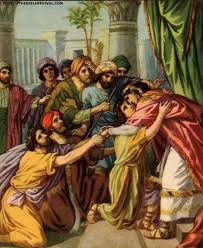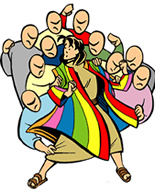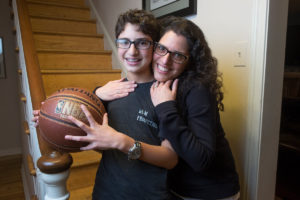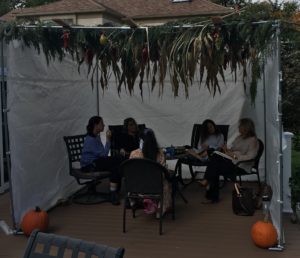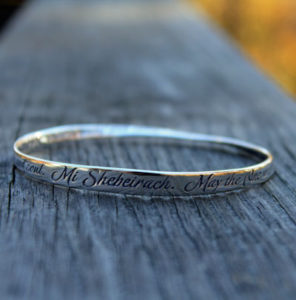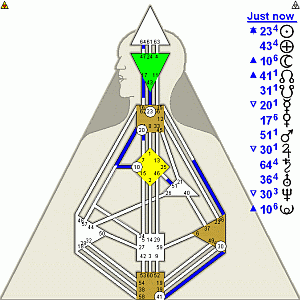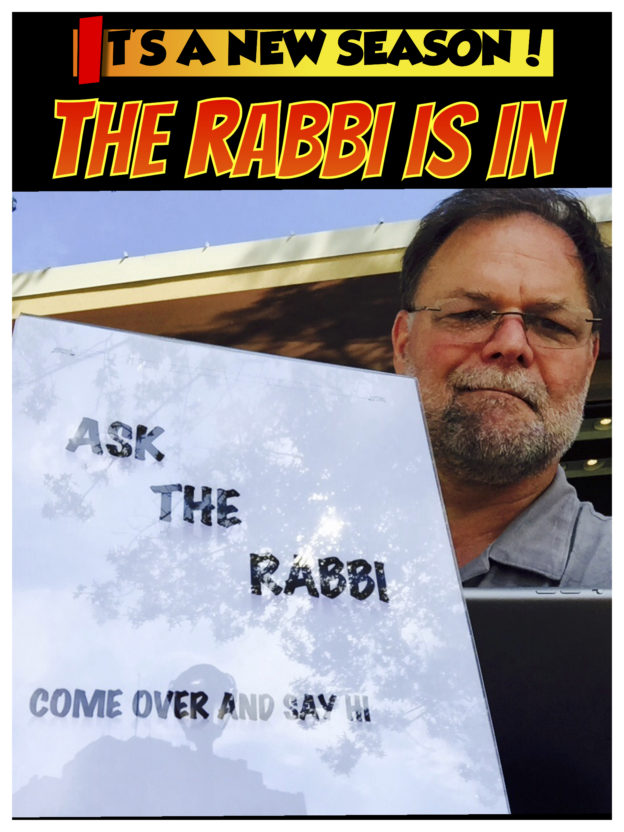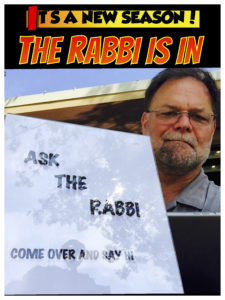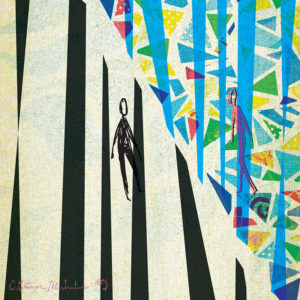
Our world seems to be in a particularly harsh place. On all fronts we seem to be ailing. People seem unable to talk with one another; our government and institutions are unresponsive to our needs; countries withdrawing from one another, many spiraling into brutal regimes. Anger, fear, and frustration divide us rather than hope guiding and uniting us. This is the backdrop to the double portion of Tazria/Metsora (Leviticus 12; 1-13:59, Leviticus 14:1-15:33), which interestingly addresses these very issues.
These Parshiot contain peculiar rituals that are actually timely messages. The ailments that afflict us are more than skin deep according to the Torah, indicating perhaps some spiritual or emotional sickness perhaps that causes the infirmed to be separated from the community. Because these ailments can infect bodies, clothes and even buildings we recognize that there is something more here than meets they eye. It runs deeper and we are compelled to question what might the Torah be cautioning us about. Torah’s message rarely stops at the edge of The Land so we can engage what these portions say about us. But first, let us examine the Parsha a bit closer.
Tazria continues the conversation about ritual impurity from the previous chapter, Shemini. The Parsha moves into the conversation surrounding Tzaraat, an affliction affecting people. It is often referred to as leprosy because it manifests itself as scaly white patches, but more interesting is the decision to bring in the Priest.
The Priest, instead of a doctor, views the afflicted person to decide if indeed this is Tzaraat. The priest instead of the doctor raises our collective eyebrows. We are not the first to grapple with the texts here. Two of our classic commentators, Rashi and Abarbanel, wonder about this too. Rashi hones in on the phrase that notes the Priest is called when the white patch seems to go deeper than the skin of the afflicted person’s body. Arbarbanel focuses in on the idea that the priest is called instead of a medical Specialist to provide treatment for the individual.
We know that medical treatment options were available. Egyptians, Greeks, and Romans practiced sophisticated medicine. In Exodus and 2Kings Abarbanel notes the use of medical treatments. Our texts speak of something besides some physical problem.
Our tradition has seen afflictions as a punishment for sin against God. Nachmanides says the Divine Spirit keeps bodies, clothes, and homes in good appearance. But when one of them sins, ugliness appears on his flesh, clothes or his house. Later, the text tells us that if the affliction reappears, the clothing is burned and houses were taken down. Sforno, another commentator, suggests that perhaps the seven-day process of isolation of the afflicted is meant to rouse the sick person to repentance. We might build upon the ideas of our teachers to suggest our goal is to remedy and repair, performing Tikkun upon “people,” “clothes,” and “houses” instead of tearing them down.
Afflicted people are those who are motivated solely by their own selfish considerations. The “clothes” represent the identities or communities with which we recognize our place in the society, the roles and responsibilities of our jobs that serve others or only ourselves. The “houses” are the institutions established to promote the common good, but have become corrupt perhaps undermining their missions, supporting very wrong they were intended to redress.
Judaism teaches us to care for the needy and weak. Clothing the naked, feeding the hungry, and caring for the widow and orphan is our charge. Our American tradition should measure our success by how well we care for the weakest among us. Freedom, liberty, and justice are our core values. They have made us a light to the nations. Our text gives us the opportunity to review what we do and consider course corrections to keep our sacred mission working. But the work begins with us.
Buber reflects that a person cannot find redemption until he/she recognizes the flaws in their own souls. A people likewise cannot be redeemed until it recognizes its flaw and attempts to efface them. Redemption comes only to the extent to which we can truly see ourselves. Redemption is not an act of grace; rather it comes when we make the world worthy of it. Only through our faith and deeds can we make so.
We are charged with a holy mission to be agents in the process of Tikkun and creation. We each are part of bigger things that begin with our own selves: family, country, and the world. How do we assume our responsibility in the work? It starts by living up to the standards to which we aspire, acting with kindness and respect for each other, and finding common ground to promote the common good; we must ensure our institutions embody our values, and actively support organizations that promote those values, here and in the world. Tazria/Metsora challenges us to act as though we are each a priest and to act embracing that each of us is B’tzelem Elohim, bringing the holy where it may not exist and effecting the changes we aspire to see in our lives.


